BANKE: Chamar Kewat used to make her living by selling the leaf plates known (tapari) near Mahendra Chowk in Nepalgunj Sub-metropolis. She used to have a net savings of three to four hundred by selling those taparis per day.
Even in the scorching heat of Nepalgunj, she used to make the taparis sitting by the roadside. When the lockdown started, she could not sit on the side of the road. The road where she used to sell the taparis is deserted.
The lockdown imposed to curb and control not only plummeted Chamara’s income to zero but also took her husband’s job.
According to Chamara, after her husband lost the job of building a brick wall, the family found it difficult to get food for survival.
After living in poverty for almost five months, she returned to her old place with the old profession. Her husband has not got any job to date.
“What to say about the lockdown, we had to live without food for many days,” Chamara recalled adding, “ we have to manage with Rs 100-150 per day even these days.
Like Chamara’s family, more than 30 families selling pottery and cutting grass on the road near Mahendra Chowk seem became jobless all of a sudden.
As every family had to withstand similar hardship, there was not to help with money and loan in the settlement. There was no income and no one to lend.
Since there was no other source of income, I had to take out a loan to buy food. They say that they have to go to bed hunger for many nights because it is difficult to get a loan due to lack of income.
Kesar Kawat, 70, feels at the mercy of God now.
“We used to sell taparis and grass; we lost the source of income in lockdown, how can we get some money without working?” Kesar asked, “how can we make our living. More than coronavirus we fear starvation. We made the living by taking loans, may such days never come to anyone.”
The poor and destitute suffer everywhere
Kingurian settlement in Nepalgunj-22 also suffered a lot due to the pandemic. Almost every family of the 90 household settlements makes their living by earning daily wages.
Some drive rickshaws, others bring firewood from the forest and some others sell clothes on the roadside.
After the lockdown, the income of everyone in the settlement was stopped at once. With a few days of savings, there was a shortage of paddy.
As every family had to withstand similar hardship, there was not to help with money and loan in the settlement. There was no income and no one to lend.
Nanke Kingaria, a young man who makes his living by driving a rickshaw, told Khabarhub that the settlement was in crisis in lockdown.
Sajid Kingaria who used to make her living selling firewood had nothing left now.
“Firstly, I could not go to bring firewood from the forest; even if I managed to bring there was none to buy the wood,” Sajid narrated her grief, “We spent many days without food. What’s more, there is the loan to be paid as well!”
There are Kamarudhdhin Kingaria has six members in his family. Lockdown took the employment of all.
“Everyone has to stay at home as there is no work. When everyone is at home, the family needs more food, but we have nothing except the sorrows to share,” Kamaruddhin told her story, “Words fail to describe the grief.”
Then started the discussion on relief
None thought about the poor and lockdown affected wage-earners for nearly a month. They started talking about the relief after one month of the loss of the jobs and the talk got confined to words for some more weeks.
After many days of the federal government’s publicity about the relief package, the local levels started the process of collecting the data, identifying the number of victims and offering relief.
The relief that came was 10-20 kg per family of five to seven persons.
After many weeks, the campaign reached the Kingaria family as well.
Bidya Ram Burma, the Ward Chair of Ward No 22 claimed to have distributed the relief for more than 700 households, but the nominal relief hardly lasted for more than one or maximum of two weeks. When one round of distribution was finished the local levels felt their responsibility fulfilled.
“We can’t deny getting the relief but the fact is it did not last much longer,” Kamaruddin commented on the relief offered to them.
As the locality has been bordering with India, and is also a business hub for people returning to or from India, people dreaded the pandemic would spread quickly all over the district. Changing their fear into reality, the coronavirus pandemic spread in many communities in Banke.
Some organizations and individuals also offered relief. But as the lockdown got prolonged the relief did not support much longer.
The victims suggest that the local levels should come with the relief that can help the victims have at least two meals a day at least for some weeks or more considering the duration of lockdown and prohibitory orders.
The victims are trying to overcome it.
The entrepreneurs also felt helpless
There are eight local levels in Banke. Out of them, Nepalgunj Sup-metropolis is regarded as the business hub of the central and western sectors of the district. This is also the main business hub of hilly districts.
There are various business organizations ranging from small scale hotels to hotels of millions of rupees employing thousands of people. Coronavirus seized their jobs as well.
As the locality has been bordering with India, and is also a business hub for people returning to or from India, people dreaded the pandemic would spread quickly all over the district. Changing their fear into reality, the coronavirus pandemic spread in many communities in Banke.
The entrepreneurs complain that their business collapsed due to the pandemic.
With the implementation of federalism in the country, the business sector had experienced some positive signs. They had expected that Nepal Tourism Year would also help them promote the business.
But unfortunately, the pandemic outbreak and various strict measures taken in the name of curbing and controlling turned their dreams of prosperity into dust. Now they say, they are not in the position of paying the rent of the land and the bank loan as well.
Uma Grandon, the President of Banke Hotel and Restaurant Entrepreneurs Association told Khabarhub that the pandemic crushed their business.
“Thousands of people employed in this sector became jobless, they found it difficult to support in livelihood,” Grandon narrated the grief the entrepreneurs were in, “on the other hand, the entrepreneurs quitted business sector finding them unable to pay the bank loan and the house rent.”
She added that the hotels and restaurants now open are also not operating well due to shallow visitors. Grandon complained that the local government and the regulatory authority did not heed the suffering of the business sector.
The slow progress in coronavirus control and prevention
Before the pandemic spread in Kathmandu and other parts of the country, Banke had already turned into a red zone in terms of the people’s response to corona.
At first, the India-returnees were found coronavirus positive. Despite the attempts to keep the people returning home from high-alert to those returning from the most vulnerable places of India, the virus spread in the community.
When the community level transmission was noticed in Banke’s Narainapur, the people all around the country got more concerned.
A large number of returnees from India, the increase in the coronavirus cases, the lack of cooperation of ambulance and the hospitals in the treatment of the coronavirus infected people made people project the pandemic was getting stronger rather than declining.
Chief District Officer plays a significant role in both plannings and implementing various strategies against the pandemic.
Complaining against his work performance, the Ministry of Home called Banke’s CDO to the Ministry and sent Synagja’s CDO Ram Bahadur Kurumbang to Banke citing the former CDO’s role was not satisfactory.
The entrepreneurs say that then only the fight against the pandemic got some momentum in Banke.
The district has seen more than 3000 coronavirus cases to date. 30 people have lost their lives, which means the death rate from coronavirus pandemic is nearly one percent.
According to Naresh Shrestha, the Public Health Officer of District Health Office Banke, there are 142 isolation beds, 24 ICU and eight ventilators in Banke.
In the past, it was difficult to collect swab and send it to the hospital. Now there are three labs in operation.
The swab of the poor and the marginalized is collected in front of the District Administration Office for about one hour from 5 PM every day.
Shrestha told that the office collects 20-40 swabs from such a community every day and provides the report the same evening.
“There are the directives that the pandemic should be curbed at any cost, yet, we are also committed to the fact that the poor and those lying beyond the access of the state should get priority in getting tested and treated,” Chief District Officer Kurumbang shared the district’s policy for coronavirus test and treatment, “I have been working day and night in coordination with the health office in the district.”
The complaints about humiliation in the community
When the infection was noticed in the people here, the patients became the victim of discrimination and humiliation from the community.
A particular community was humiliated and harassed and the people found it difficult to get adjusted in the community even after returning to normalcy.
Now, time has changed. People have realized that the patients should not be discriminated against and everyone should cooperate with each other to curb and control the pandemic as the communal efforts bear early results.
People have started exploring and sharing new ideas in each community. Those who have money pay it stays in well-facilitated hotels whereas the ones who do not have money join the long queue to get their swabs collected and stay in home isolation or community isolation. They complain there is discrimination even in the treatment of pandemic.
CDO Kurumbang regards it as normal and says that there is the provision of free treatment for the people without money.
“The ones with enough money arrange for their isolation centers on their own expenses, but in the isolation centers set up by us and the community all are treated equally, there is no discrimination,” CDO Kurumbang defended the arrangement, “None is deprived of the tests and treatment just because they do not have money.”
The lockdown and the prohibitory orders imposed to curb and control the pandemic has made the life of the low-income group as worse as hell, they lost their job, their business. After the restrictions are lifted, gradually the life seems to head to normalcy. May such days never come again!


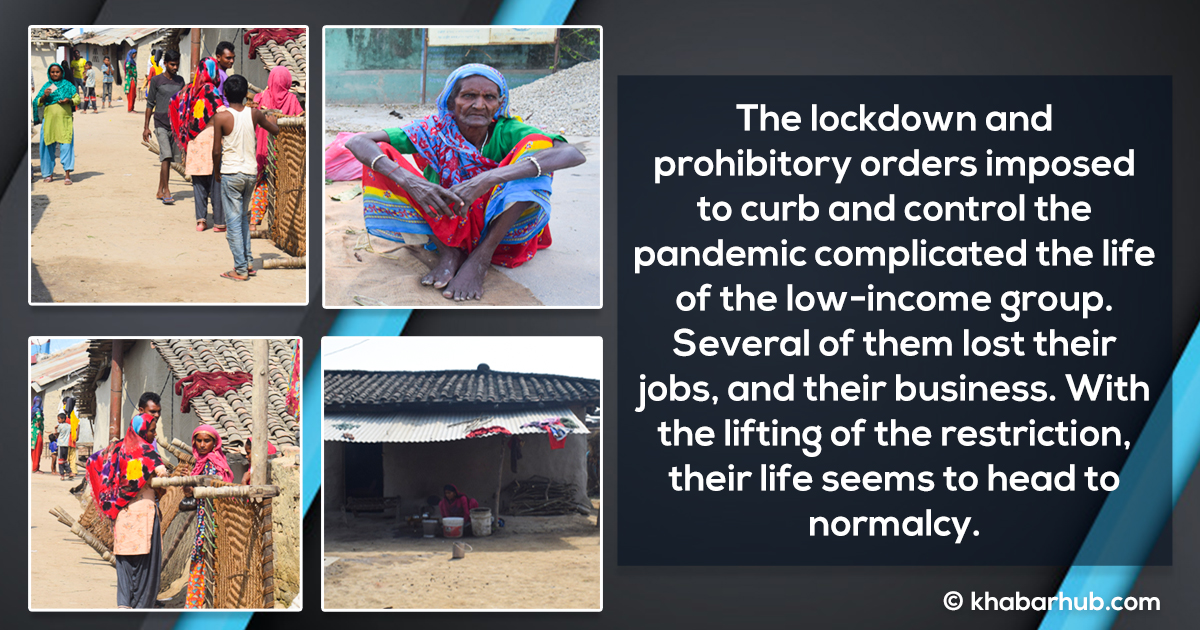
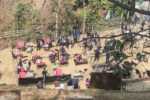
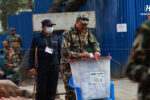
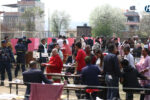
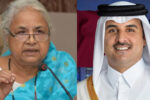

Comment